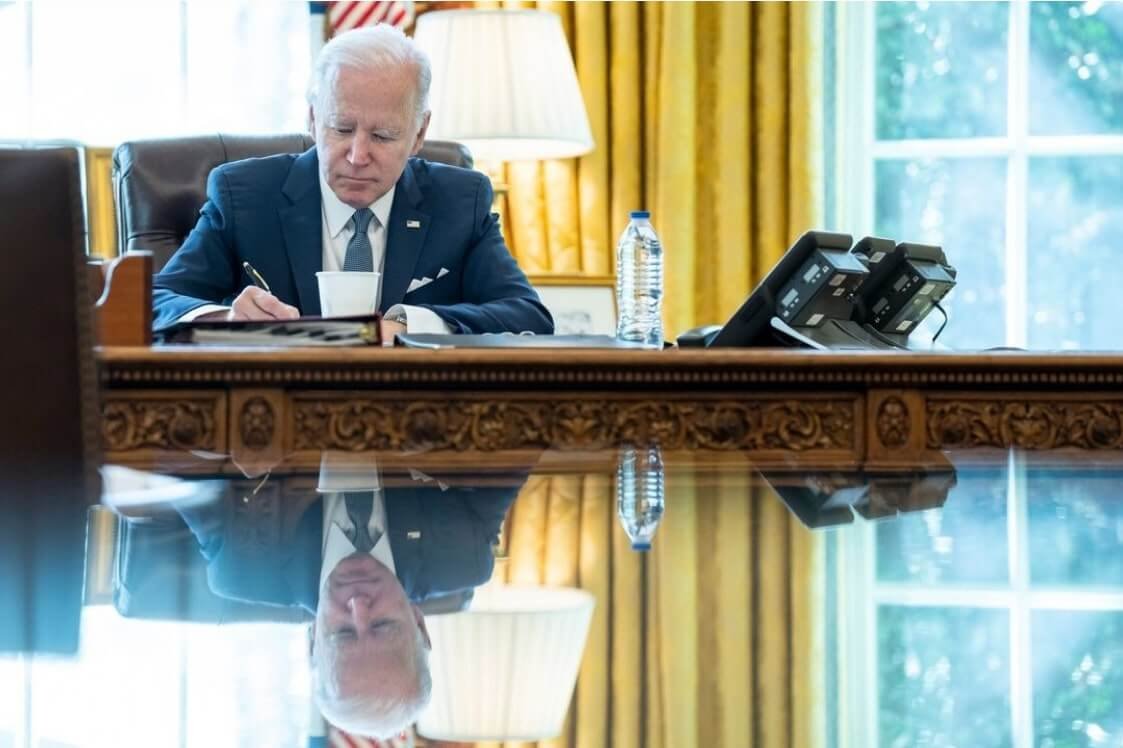
 Joe Biden. Source: A screenshot, Instagram/potus
Joe Biden. Source: A screenshot, Instagram/potus
US cryptocurrency traders and investors are likely to face a new round of regulations after US President Joe Biden issued an executive order titled: "Ensuring Responsible Asset Development digital". The document aims to create a stricter and, according to some, more consistent regulatory framework for the cryptocurrency sector.
But while some applauded the order, calling it "sober" and saying it will bring new legitimacy to the industry, as well as a spirit of fairness, others say the document lacks clues in some areas. Some claim that it focuses too much on central bank digital currencies (CBDCs), tokens that mostly don't even exist yet.
The document explains that the government "should strengthen the leadership of the United States in the global financial system and in technological and economic competitiveness," a measure that includes "the responsible development of payment innovations and digital assets."
It also calls on a plethora of government agencies to brief the executive with their proposals on how to govern the sector and create client protection protocols, requiring reports within 90 to 180 days.
Congressman Tom Emmer took to Twitter to say that "it is imperative that we develop a strategy to drive innovation" in the crypto and blockchain sectors. But he said that if observers were to "read between the lines," they would notice that there was a distinct lack of mention of decentralization.
Wrote:
"doesn't once mention decentralization. Disintermediating our economy will allow all Americans, regardless of circumstances, to decide their future, not a bank, Big Tech, or the government.
He also focused on the CBDC, explaining that it was problematic to place the “highest urgency” on CBDC reporting. emmer wrote:
“Any common sense analysis of a potential CBDC in the United States that is not open, unauthorized and private would show that the idea itself is a failure and a disservice to Americans.”
The congressman also criticized the head of the Securities and Exchange Commission (SEC), Gary Gensler, writing that he was "very lucky" that the order "did not ask the SEC to intervene" because Gensler “spent the last year intimidating crypto innovators and entrepreneurs with his unproductive regulation through public pronouncement and enforcement action.
Crypto lobby group Coin Center also weighed in, with the center's research director Peter Van Valkenburgh putting a positive spin on things, saying that "overall" the order was "a good thing." He claimed that "education and information" agencies could fix the wrinkles, but said, "That's what we like to do."
The head of the center, Jerry Brito, was similarly positive, explaining that the order was “yet another affirmation that when serious officials take a serious look at cryptocurrencies, their reaction “was not to set their hair on fire, but rather to recognize it as innovation.” that the United States will want to foster and lead while mitigating the obvious risks.
But not everyone sang from the same hymn sheet.
While Blockchain Association policy officer Jake Chervinsky called the order a “good start,” many in the thread below his post disagreed.
One called the order "no burgers," while another claimed the order's "political language" gave him "the opposite reaction."
Others expressed skepticism about the direction of the CBDC, with one commenting:
“The United States was founded on the decentralization of power. Centralizing a digital currency is a bad thing for people who don't like the government running their lives.
Meanwhile, Gensler also joined the discussion, writing that he looks forward to "collaborating with colleagues across government to achieve important public policy goals."
Some, however, were unimpressed with his sentiments, believing the SEC had bigger fish to fry in the realm of mainstream finance.
Others heightened the irony, referring to the SEC's ongoing legal fight with executives at US fintech firm Ripple.
As an XRP investor, I feel super protected by the SEC
— Mark XRP 💪🏻 (@XRPMark) March 9, 2022